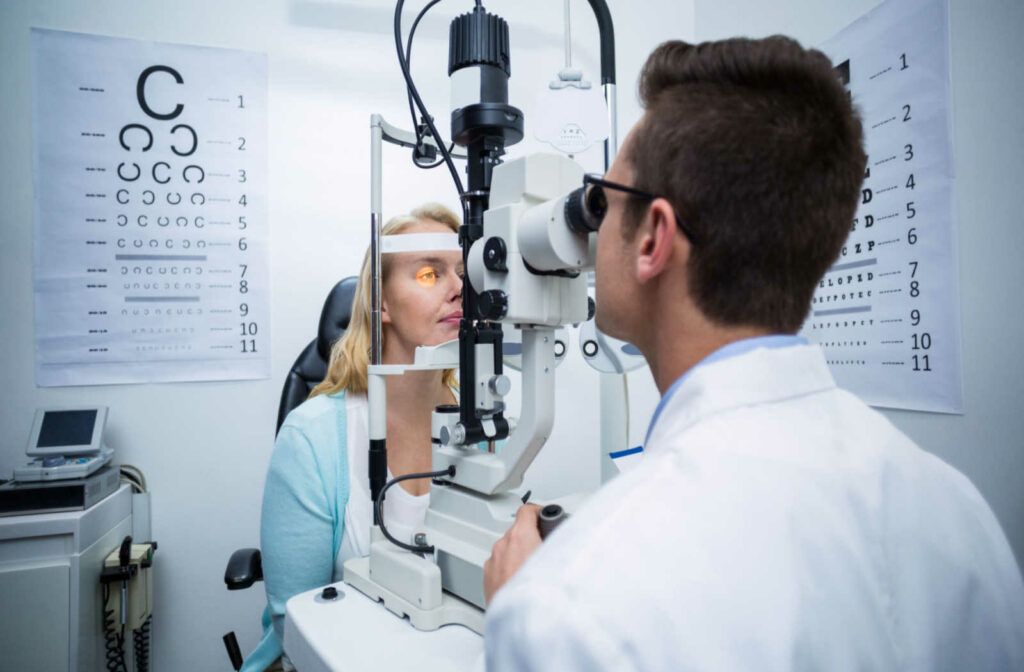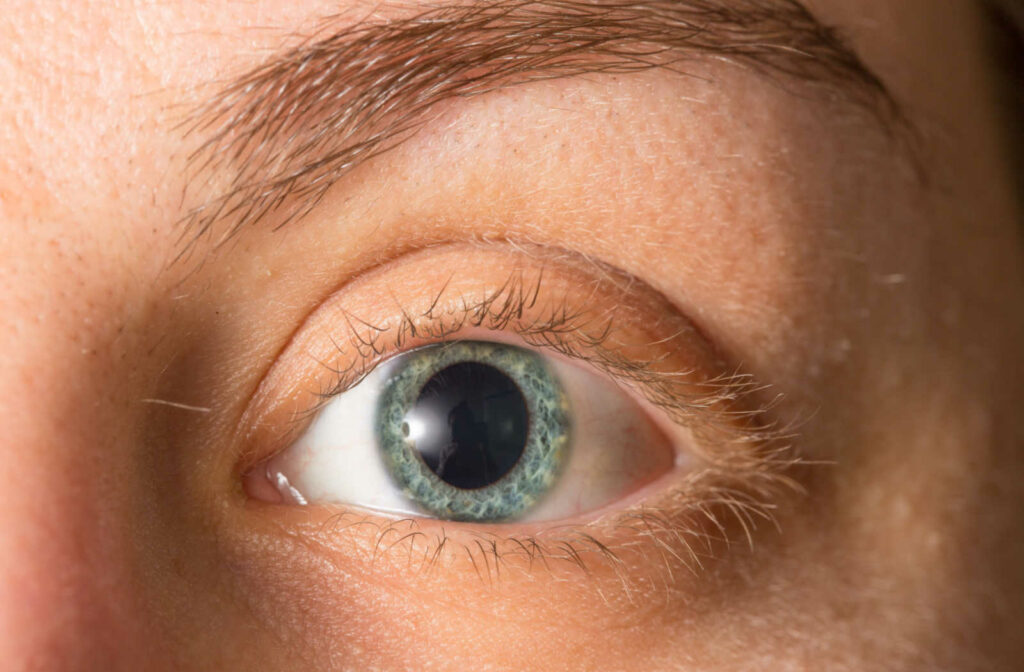Routine eye exams aren’t just for checking overall eye health. They are also crucial for diagnosing, monitoring, and managing eye diseases.
Dilation of the eye is a part of an eye exam that gives your optometrist a better look inside your eye, including the back. Let’s discuss eye dilation in detail and why it’s so important.
Dilated Eye Exams
The need and frequency of dilated eye exams depend on a few things:
- Age: Many eye diseases present with little to no symptoms or warning signs. The risk of eye disease also increases with age. For these reasons, the National Eye Institute recommends you get a dilated eye exam every 1 to 2 years after age 60 or annually if you have diabetes or high blood pressure.
- Overall health: Patients with diabetes are at increased risk for eye diseases.
- Risk of eye diseases: If you have a history of eye disease, this increases your risk of future eye problems.
According to the American Academy of Ophthalmology, anyone over 40 should get a baseline eye disease screening, including a dilated eye exam.
The eyes go through significant changes after age 40. By age 65, 1 in 3 Americans will have an eye disease that impairs vision. If you are at risk, your eye doctor will recommend a frequency right for you and the health of your eyes.
Without dilating the eye, your eye doctor can have difficulty seeing at the back of the eye. In normal circumstances, when light enters the eye, the pupils (opening in the center of the iris, the colored part of the eye) close. Special eye drops placed in the eye during a dilated eye exam ensure the pupils stay open when light shines on them.

What do Optometrists See After Dilation?
When your eye doctor dilates your eyes, they can look at your retina, the layer of cells lining the back wall inside the eye. They can also look at blood vessels and the optic nerve.
The eye drops take about 20 or 30 minutes to dilate the eyes completely, after which the eye doctor can see even more clearly into your eyes for a proper vision examination. The effect of the eye drops can last for 4 to 6 hours.
Dilation is a crucial step in proper eye care and can help detect and diagnose conditions in their early stages. These conditions include:
Glaucoma
A dilated eye exam can detect the early stages of glaucoma before vision loss occurs. Your eye doctor will look for damage to the optic nerve.
Cataracts
A dilated eye exam allows your eye doctor to examine the eye’s lens for clouding.
Diabetic Retinopathy
This eye condition is diagnosed with a dilated eye exam. Your eye doctor looks for damaged blood vessels, vessels that leak blood, swell, or grow abnormally. Patients with diabetes have an increased risk of developing diabetic retinopathy, cataracts, and glaucoma.
Retinal Detachment
Retinal detachment is when the retina pulls away from the tissue that supports it in the back of the eye. Depending on the amount of retina detachment, and if not treated, it can lead to partial or total vision loss. Your eye doctor will look for retinal tears, holes, detachment, and blood flow throughout the eye.
Age-Related Macular Degeneration
This disease occurs when the macula, part of the retina, wears down with age. Your optometrist will look for protein deposits, pigment buildup, or unusual growth of blood vessels.
High Blood Pressure
Signs of high blood pressure in a dilated eye exam include bleeding, bends, and kinks in the blood vessels at the back of the eye.
After Dilation
Dilating the eye is not usually painful, but there are some temporary side effects to take note of after the procedure. These include:
- Blurry Vision
- Sensitivity to bright light
- Trouble focusing on nearby objects
Dilated Eye Exams for Healthy Eyes
Dilation is a valuable part of eye exams and helps detect eye issues such as glaucoma, diabetes, and cataracts. If you are over 40 years or at a higher risk for developing eye diseases, an annual exam with dilation can diagnose eye conditions early and prevent vision loss.
Stay proactive and book an appointment with Griffin Optometric Group. Our optometrists are here to answer any questions about eye health and dilated eye exams.



